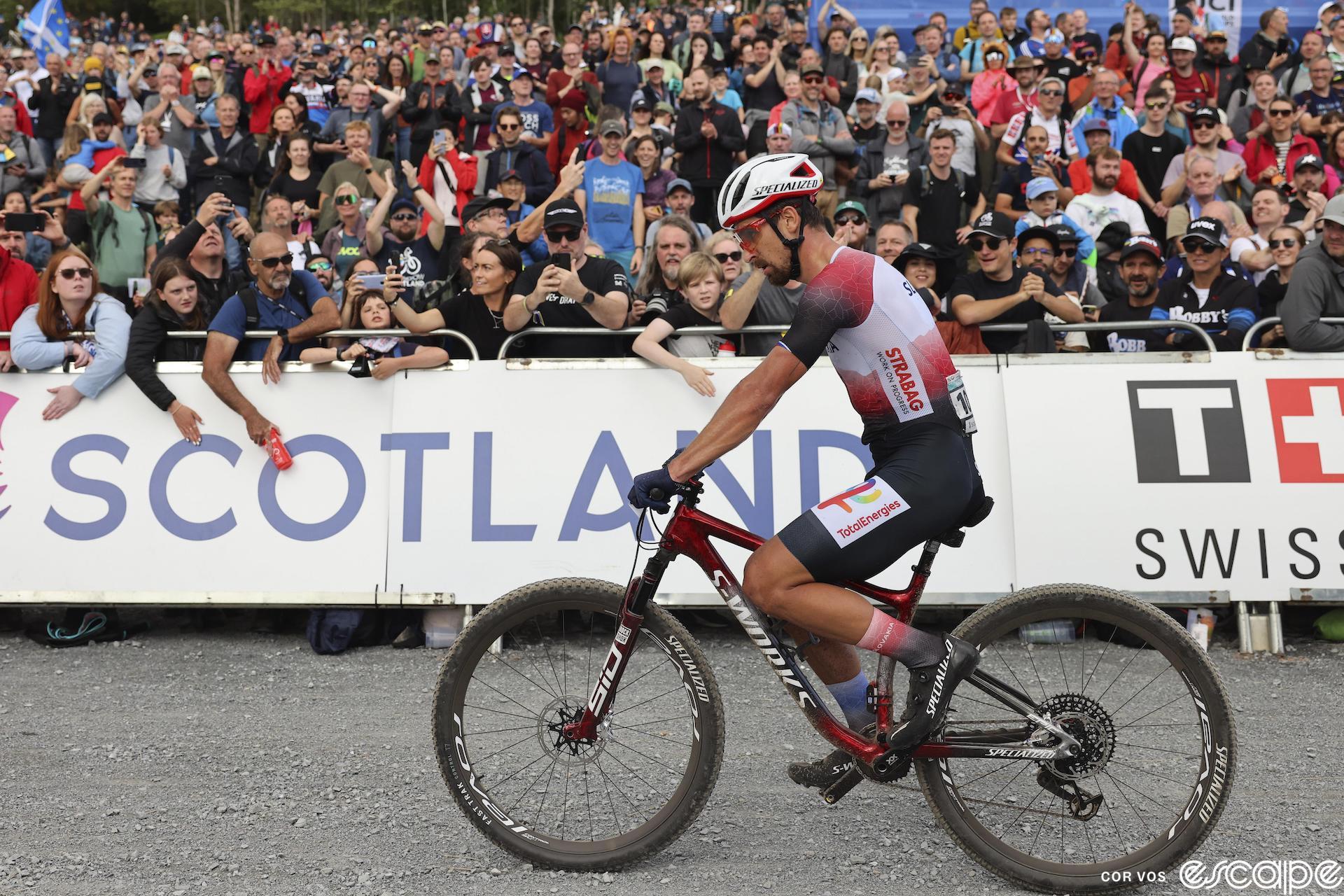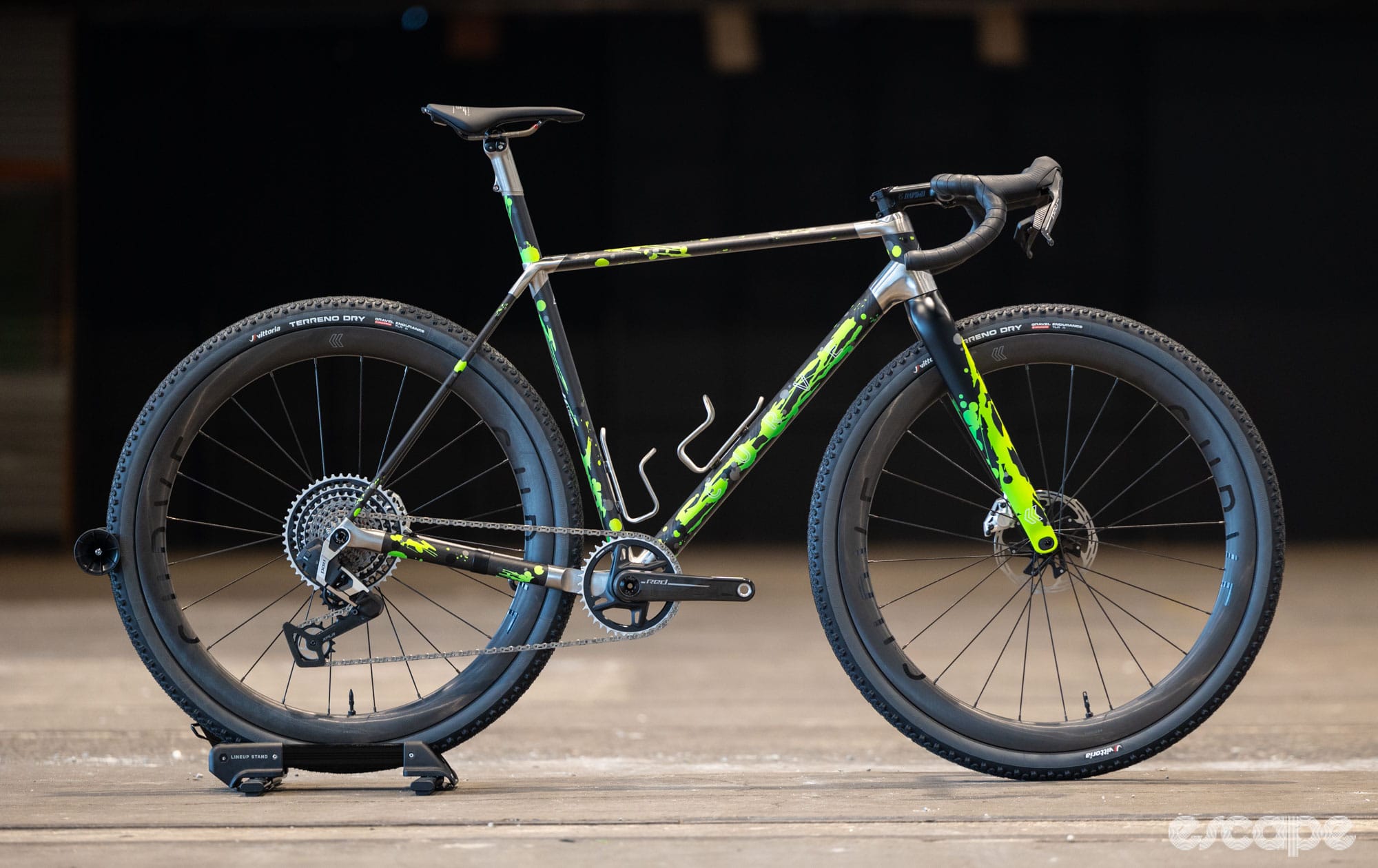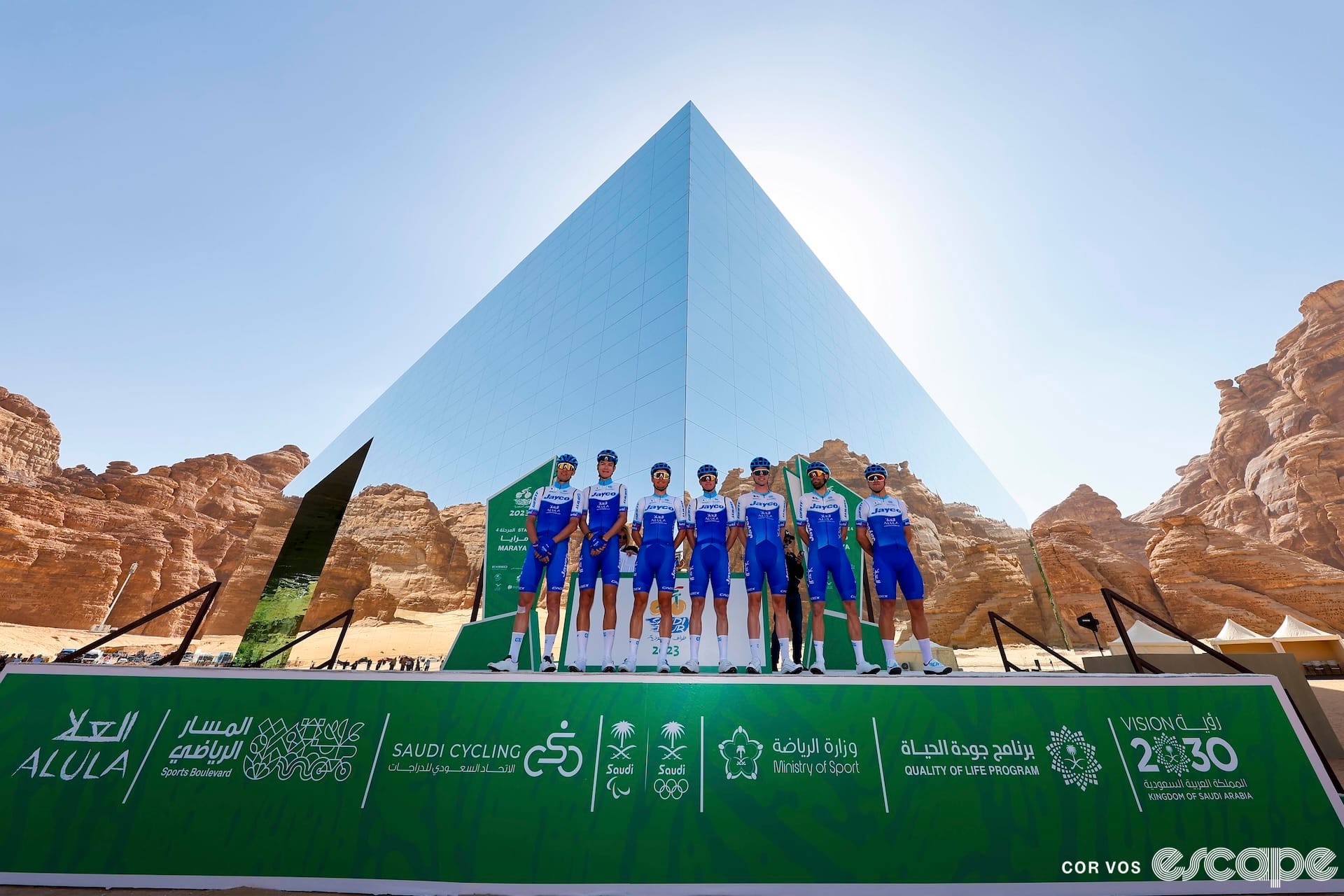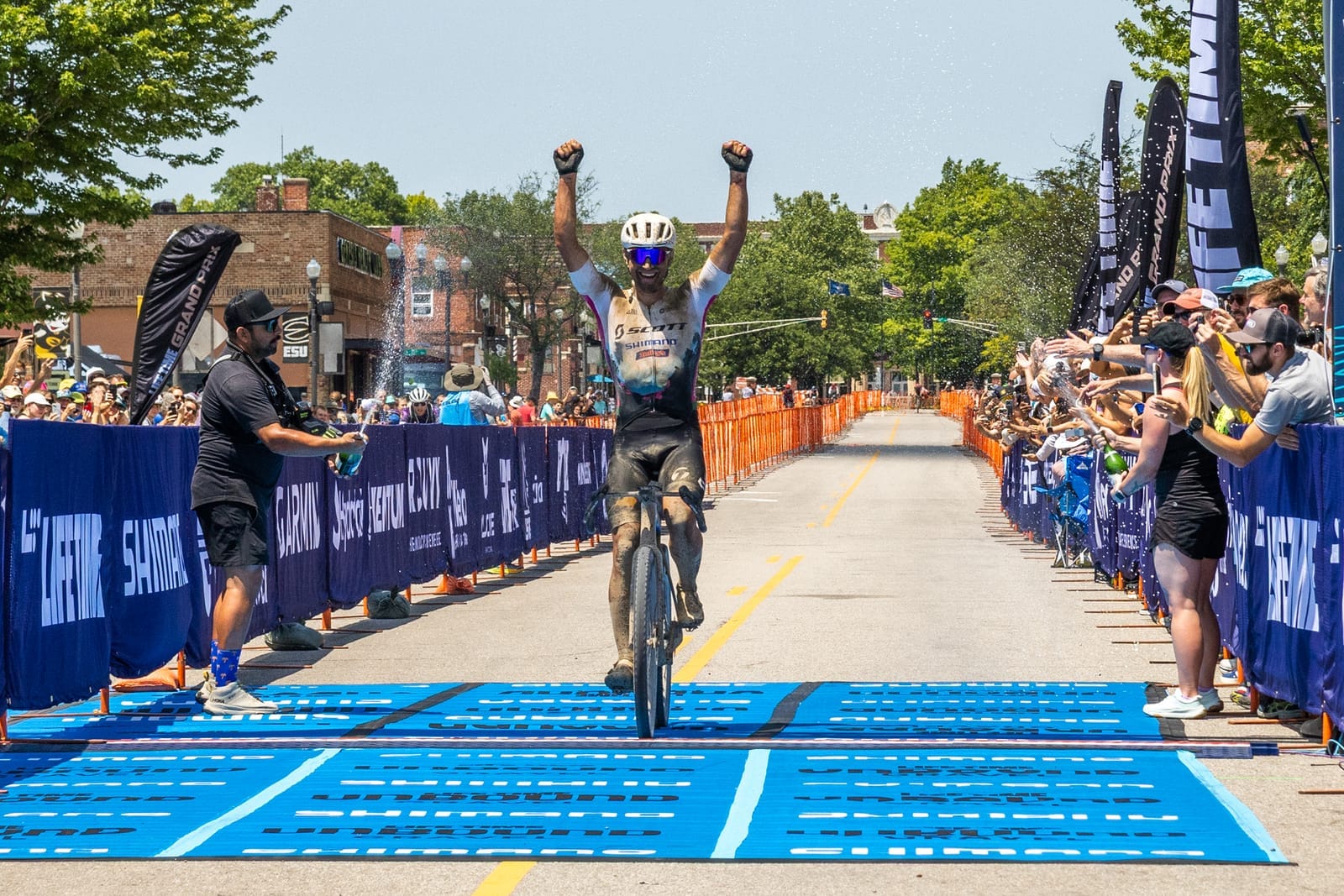Update: After publication of this article, the UCI replied to clarify that there is just one Universality Place per gender, not two. Normally, France as host nation would qualify for an extra spot. But as the top-ranked country in men's XCO racing, France already has the maximum two start spots. I've asked the UCI for clarification on what happens to that start spot, which appears based on the selection rules document [PDF] provided by the UCI to roll down to the next-highest ranked nation that has not already qualified (ie. starting with the 20th-ranked nation). This article has been updated to reflect the full rules on Universality Places.
It’s a staple of any Peter Sagan coverage lately to note that the Tour de France’s all-time green jersey winner (seven wins in the points classification) is aiming for a spot on the start line for the men’s mountain bike race at the Paris Olympics in what might be one of his final races.
Although you wouldn’t know it from most of the mentions, the path to that storybook ending was always going to be tricky and narrow for him. While it won’t be official for a few weeks yet, it may have closed off entirely ... with one unlikely exception.
After his muted performance at the World Mountain Bike Championships last fall (63rd), any push to put Slovakia in position for a likely Olympic start spot – and for Sagan to be the rider to fill said spot – would have required a more-or-less coordinated campaign by its men’s XC racers to jump some 16 spots in the nations rankings in a matter of mere months to lock up an automatic qualifier. For that to happen, almost every part of the plan would have had to go perfectly.
Spoiler: it didn’t.
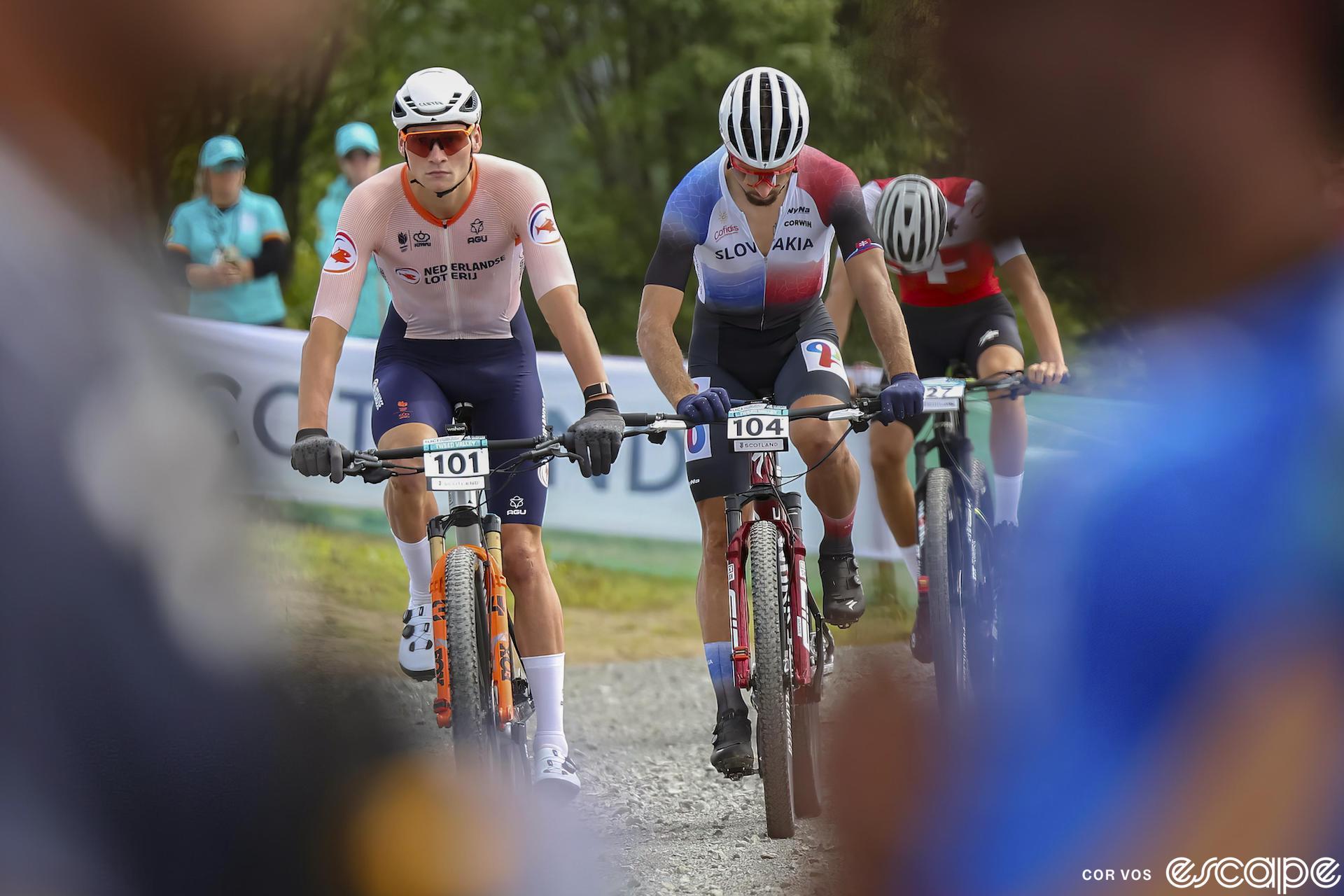
Not only was there no all-hands effort by Slovakia to score UCI points and move up in the standings, but Sagan’s own lingering cardiac issues, which required two surgical procedures that kept him off the bike for stretches of the early spring, meant he has raced sparingly himself.
As a result, Slovakia is deep-sixed in the nations rankings at 36th, two spots lower than at the start of the season. That’s vital because nation ranking is the core of how Olympic start spots are doled out for the XCO event. And there are fewer total start spots on offer than in past Olympics fields – a maximum of 36 each for the men and women, or just a third of the size of the starting field at the recent Brazil World Cup rounds. Competition is fierce.
The UCI keeps a special Olympic-qualification rankings table, which essentially tracks a two-year window that closes in just under a month, after the Nové Město round of the 2024 World Cup. Based on my reading of the rules and results, here's how I think the men's qualifications will shake out, with the caveat that these are based on nations rankings as of today. Another spoiler: it's not good for Sagan.
| Nation rank – men | Start spots | Countries qualified (in order of ranking) |
| Ranked 1-8: | 2 each – 16 total | FRA*, SUI, ITA, ESP, USA, BEL, GER, GBR |
| Ranked 9-19: | 1 each – 11 total | DEN, BRA, NZL, CAN, RSA, AUT, ROU, NOR, CHI, POL, CZE |
| Conti champs | 1 spot each: Africa, Asia, America – 3 total | NAM*, CHN, MEX |
| Worlds (Elite & U23) | 2 spots each – 4 total | LAT and COL, NED and SWE (U23) |
| Universality places | 1 total | TBD Commission selection |
| Total start spots | 36 | *: France’s extra spot as host nation goes to a country ranked 20th or lower |
You'll notice that Slovakia (country code SVK) isn't anywhere on that list. That means that Sagan's only shot at a start spot is via the final selection, which will come as essentially discretionary picks called Universality Places. (Side note: you'll also notice that the Netherlands is likely one of the last nations to qualify a rider for the men's field, so if Mathieu van der Poel does line up for the XCO along with the road race, he has U23 compatriot Tom Schellekens, fifth at the Glasgow Worlds last fall, to thank for it.)
Universality Places are the IOC's way of increasing what it calls competition diversity. They're intended to go to small countries that don't normally send large delegations to the Games, and countries that might not otherwise have qualified in a given event or discipline. Consideration is not automatic; countries that didn't otherwise qualify for a start spot but want to compete for one of the Universality selections had to submit applications by January 15.
In a classic IOC naming convention, the start spot decisions will be made by a body called the Tripartite Commission, whose members aren't publicly known, and a detail which allows me to embed this classic of western cinema.
There isn't much information on the UCI's site, but documents on other international sports federation websites note that there will be Tripartite Commissions for a total of 21 Olympic sports, made up of one representative each from the international federation (the UCI in this case) and the International Olympic Committee, and a final member chosen by the Association of National Olympic Committees. The UCI's response to request for comment did not specifically address the makeup of the mountain bike commission or when start spot decisions would be announced.
The question is how the commission defines the vague term "competition diversity" and whether Slovakia – and Sagan, who is only its 11th-best rider on individual points ranking – fits that bill. A number of other nations, including Argentina and Australia, outrank Slovakia and/or scored better finishes in recent World and Continental Championships and have strong potential claims on the lone men's spot.
Sagan is no doubt one of the most high-profile athletes under consideration. But his competitive results on and off-road the last few years, and recent health issues, likely raise concerns. The UCI drew no small amount of criticism last year for a last-minute decision on start grid spots at World Championships that had the effect of favoring high-profile road racers at the expense of rank-and-file XC pros – a move which yielded wildly disparate results in Van der Poel's crash-DNF and Tom Pidcock's win. Whether a nominally independent commission is willing to pass over a number of lesser-known but highly deserving candidates for a recognizable name remains to be seen.
Did we do a good job with this story?

